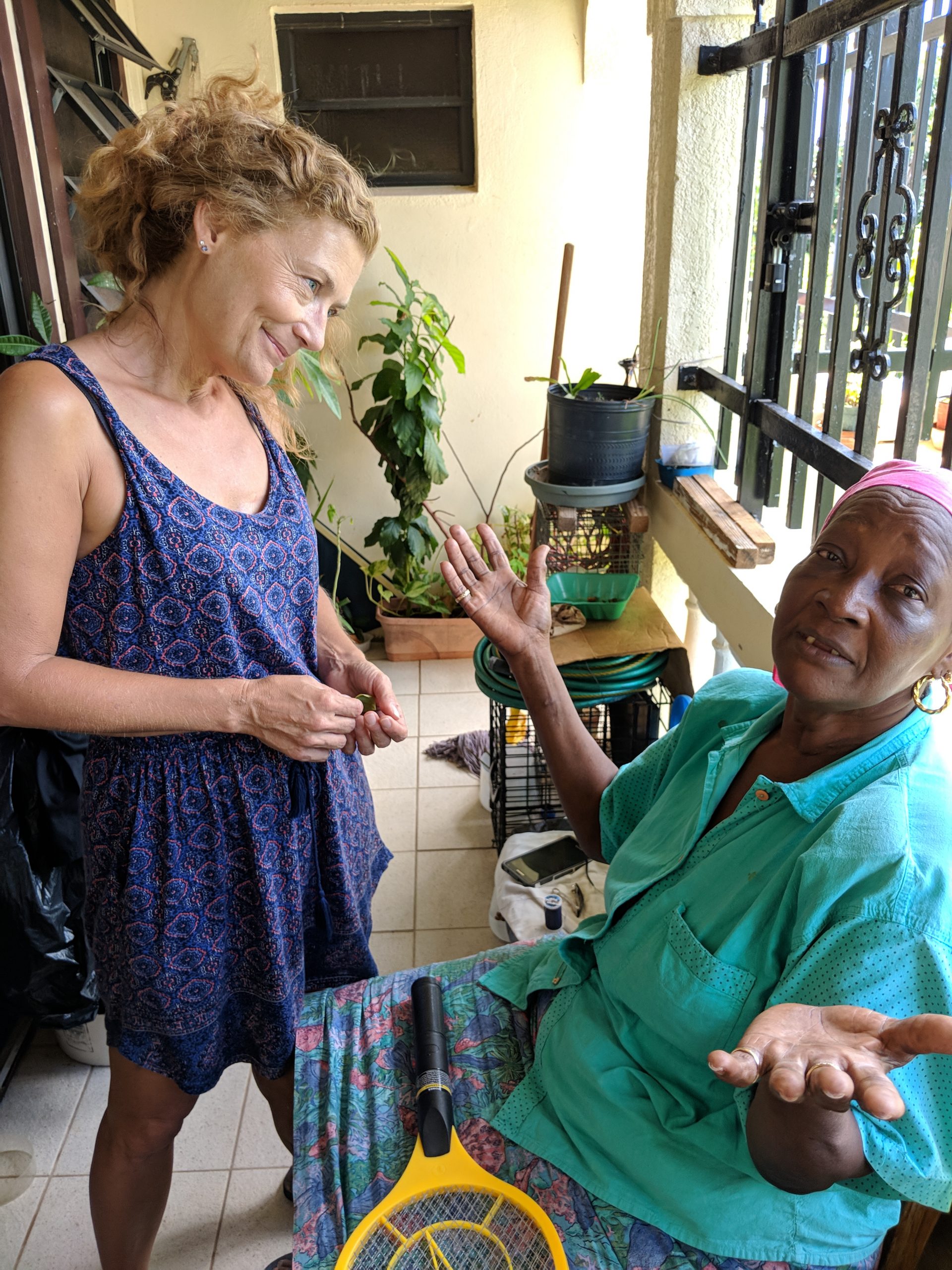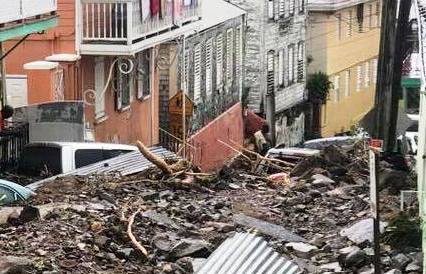Church World Service to grow UCC/DOC/Brethren Disaster Recovery Support Initiative
 A pilot program to help communities launch long-term recovery following disasters is growing ecumenically.
A pilot program to help communities launch long-term recovery following disasters is growing ecumenically.
Over the past two years, the disaster ministries of the United Church of Christ, Christian Church (Disciples of Christ) and Church of the Brethren have joined forces to pioneer the Disaster Recovery Support Initiative (DRSI) in nine states and U.S. territories.
Now DRSI is folding into the disaster programs of Church World Service (CWS), a faith-based organization with 37 member communions, including DRSI’s three founding denominations. CWS responds to hunger, poverty, displacement and disaster around the globe.
Jenn Dorsch-Messler, Director of Brethren Disaster Ministries, said, “The creation of DRSI was in response to seeing so many communities planning the response to their first larger disaster and feeling lost and looking for more than a manual to explain the process. We are excited to see that this relational model will continue under the CWS umbrella so that more of those communities can be supported with these teams walking with them in the future.”
DRSI addresses the growing gap between when a disaster hits and when volunteers are deployed to support community-based long-term recovery. The initiative uses a Disaster Recovery Support Team on the ground to encourage, mentor and otherwise support community-based recovery groups. The team may include up to three members with expertise in three main areas – basic formation/training, disaster case management, and construction.
Long-term recovery groups are a critical part of responding and mitigating the impact of future emergencies. In order to be successful, these groups need technical and operational knowledge and experience in their communities.
So far, the DSRI has deployed Disaster Recovery Support Teams to Texas, Wisconsin, Arkansas, Illinois, Nebraska, Georgia, North Carolina, Puerto Rico and the U.S. Virgin Islands to support long-term recovery groups. In 2018, an external evaluation of DRSI in the U.S. Virgin Islands concluded that the model was effective and worth replicating elsewhere.
DRSI now moves into Church World Service’s Domestic Disaster Program.
“The Disaster Recovery Support Initiative is an important component of disaster response,” said the Rev. Dr. Karen Georgia Thompson, UCC associate general minister for Global Engagement and co-executive of Global Ministries. “Expanding this network with CWS further enables timely long-term recovery. This ecumenical engagement is a further sign that the churches involved in disaster recover are committed to new ways of working together.”
“For CWS this is an opportunity to further our role in coordinating disaster recovery activities and pooling resources from different communion members,” said Silvana Faillace, CWS senior director of Development and Humanitarian Assistance. “We are interested in folding DRSI into our Domestic Disaster Program, since this provides an opportunity for closer collaboration with our member denominations, including both DRSI founding members and any others who are interested in joining.”
DRSI’s stated projected outcome is: “to develop capacity within the local community to lead a holistic recovery after a disaster, which will reduce the time between the event and the organization of a functioning, local Long-Term Recovery Group.”
At the invitation of community leaders, local non-governmental organizations and other concerned stakeholders, the Disaster Recovery Support Team will deploy to a disaster affected community. A deployment is custom-tailored for the needs of the community and can range from single week-long visits to embedding within the community for 2-6 months. Depending on local need and available funding, the team is formed and managed by CWS.
This “aligns well with the CWS Domestic Disaster Program, corresponding to the program’s ‘Support to Communities’ component, and thus motivates CWS to see how we can fold DRSI into CWS programming,” said Mark Munoz, the Associate Director of the Domestic Disaster Program.
“It’s great that CWS now gets to take the lead on DRSI, and at the same time we look forward to continue coordinating with the Church of the Brethren, Christian Church (Disciples of Christ) and United Church of Christ,” Munoz said. “These denominations have become our ‘DRSI Advisory/Steering Team’ to assist, in the first instance, by providing advice during the handover process, assistance with fundraising and support for maintaining robust monitoring and evaluation practices.”
In general, long-term recovery groups work with residents who need assistance to restore their homes to safe, sanitary and secure conditions, prioritizing the needs of the most vulnerable. In the context of recent disasters, closer observation of these groups has identified structural and operational weaknesses in disaster response and recovery.
Some examples of areas in which LTRGs have requested support/strengthening include development of By-laws and Codes of Conduct, basic disaster case management skills, navigating the FEMA appeals process, and proposal writing.
Findings from the evaluation of DRSI in the U.S. Virgin Islands indicated that long-term recovery groups improved their ability to address and manage construction, mobilize disaster case managers, raise funds, establish internal systems and more. Through the DRSI capacity building approach of sustained on-site presence of the DRSI Team who encourage, mentor, model, and support the LTRG the local group members are enabled to better solve their problems and respond to needs of survivors.
DRSI has and will continue to prioritize the needs of the most vulnerable, including elderly persons, immigrants and refugees, and those with disabilities. It will also target disaster survivors who are not eligible for government-sponsored low-interest loans in disaster areas, traditional loans, or other financial assistance due to lack of income, immigration/refugee status or inability to repay the loans.
Related News
A Prophetic Call for Justice and Peace in Palestine
The executive leaders of the United Church of Christ have issued the following statement...
Read More‘Love is Greater Than Fear’: Regional Youth Events get to the heart of gospel message
United Church of Christ teens attending this summer’s Regional Youth Events (RYE) are...
Read MoreUCC desk calendars available to order now
Prepare for your day, month and year with the United Church of Christ desk calendar —...
Read More


